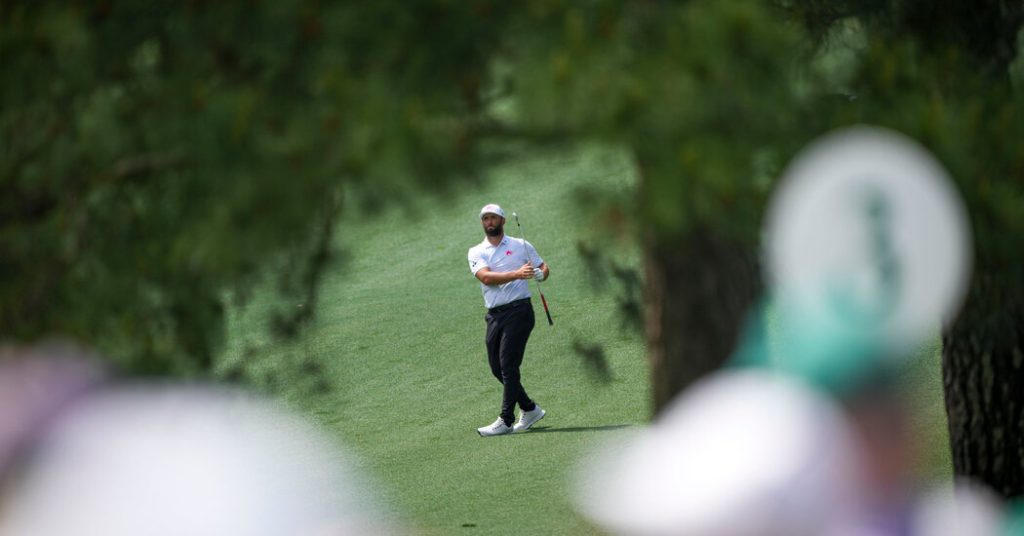The Masters tournament, held at Augusta National Golf Club, is known for its traditions, including the champions dinner where former winners gather, and the previous year’s winner sets the menu. However, this year’s dinner was overshadowed by the ongoing fight between the PGA Tour and the Saudi-backed LIV Golf series. Despite agreeing to a deal last June, a final agreement has not materialized, leaving the future of professional sports uncertain. The players, who have gained more power, are pushing for a resolution. The outcome of the conflict between the PGA and LIV could have a lasting impact on the world of sports.
The schism between the PGA Tour and LIV was brought to light during the Masters when the 2023 winner, Jon Rahm, designed his menu to reflect his roots in Spain despite quitting the PGA Tour for LIV. The issue was addressed by two-time Masters winner Tom Watson, who urged the players to work towards a solution. While LIV remains confident that more players will join after Rahm’s defection, the PGA Tour is strengthening its position by securing investments and equity for the players. Intermittent talks between the two sides have not yet resulted in a merger agreement, highlighting the complexity of the situation.
Key questions surrounding a potential merger between the PGA Tour and LIV remain unanswered, including concerns about creating a monopoly, regulatory scrutiny, and determining LIV’s value. The expensive battle between the tours may not be sustainable, as even the Saudis, who are investing in sports globally, are signaling a reevaluation of their spending. The recent scaling back of ambitions for a new desert city suggests that financial reality may limit the trajectory of golf and other sports.
On the economic front, a hot inflation report has led Wall Street to reconsider its expectations for interest rate cuts by the Fed. JPMorgan Chase CEO Jamie Dimon expressed concerns about global risks affecting the markets and his firm. Meanwhile, Amazon and Apple are doubling down on artificial intelligence, with plans to leverage generative A.I. and develop A.I.-ready chips. Shareholders have voiced their concerns about Paramount’s talks with Skydance, fearing dilution of stakes and premium sales by the controlling shareholder.
National security is increasingly intertwined with companies, as they often detect threats before government agencies. In cases like the Russia-Ukraine conflict, companies like Microsoft and Google played a key role in identifying malicious activities and supporting efforts to protect critical infrastructure. However, the involvement of private companies in national security poses risks, particularly in decisions related to artificial intelligence and cyber defense. The future of international conflicts hinges on agreements surrounding the use of A.I. and ensuring common-ground rules among competing nations.


